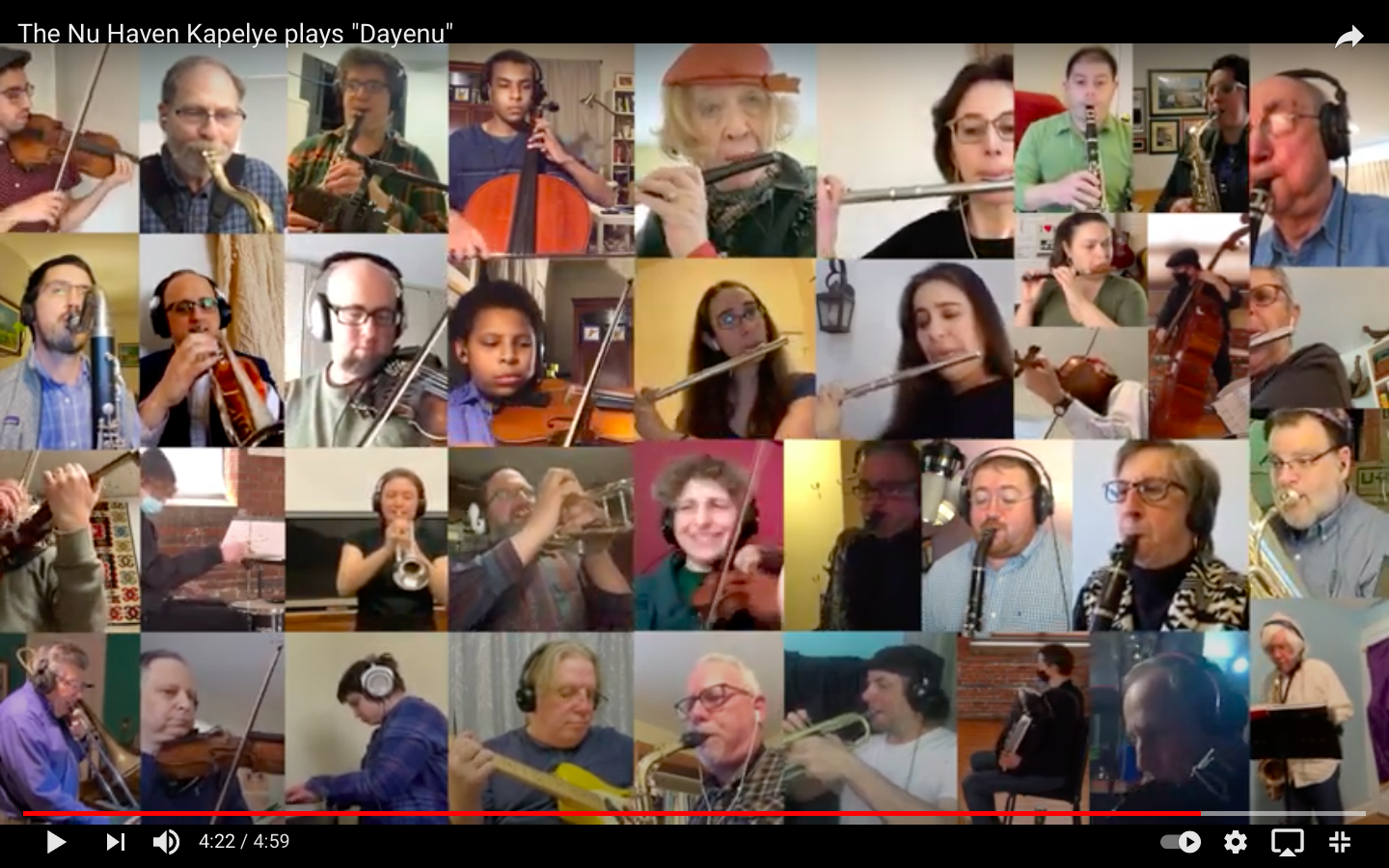
Gamze Kazakoglu, Contributing Photographer
On March 26, The Nu Haven Kapelye — a year-round klezmer band based in New Haven — released a video cover called “Dayenu” for Passover. The song is an arrangement of a traditional Passover song called “Dayenu,” which means “it would have been enough.”
Klezmer is a Jewish instrumental musical tradition of Central and Eastern Europe which includes dance tunes and ritual melodies. The Nu Haven Kapelye released four other virtual videos during the pandemic, and “Dayenu” marks their fifth. This year’s “Dayenu” features guest klezmer musicians and their families from across the globe.
“There are two reasons why this particular video is special. One reason is because it is Passover and it’s an important holiday for the Jewish religion, but also because it marks our second Passover video,” said Elina Stelman, the chairperson of Nu Haven’s marketing committee, in an interview with the News.
The Nu Haven Kapelye was founded in the late 1990s by a small group of local musicians who came together on Dec. 25 to create a concert of Jewish music for the New Haven community. Last year, the band experimented with creating their first virtual recording called “Eliyahu,” a funky jazz interpretation of the traditional Eliyau melody. The success of this recording inspired members to continue creating videos.
The video features the musicians either playing instruments or singing. Alongside, it includes different Passover symbols like matzo, egg and wine, as well as snippets of guests’ personalities.
“I wanted it to be joyous, a little bit silly. The folks in the band — there are some really outstanding characters — and I wanted it to come through,” percussionist Jay Miles said.
The band did not hire external musicians or technicians for arrangements. Trumpet player Noah Chevan managed the audio, Miles created the video and singer Cynthia Astmann organized graphics.
Miles paid attention to camera framing while creating the video. Musicians recorded their parts with different devices and orientations, and Miles edited the footage to introduce homogeneity. He also tried to bring family members together in the video.
“[Chevan, Miles and Astmann] are all part of this sprawling, wonderful group, they get it, they know us, they are us, and so these videos feel organic — an extension of who we are when we play together in person,” said Anna Reisman, the president of the Kapelye board.
The virtual format allowed a greater number of people to participate in the event, including guests from all over the world. For Dana Astmann, an accordionist and member of the board, this felt like the spirit of a community ensemble.
Both Miles and Stelman likened this sentiment to the inclusivity of a Passover meal, when people from different backgrounds are brought together.
“It was symbolic because one of the main elements of Passover is that you’re supposed to invite people in. So, we were able to welcome some guest speakers to their Nu Haven Kapelye home,” Stelman said.
But the online format presented its own challenges. For instance, the band members had to submit their recordings individually and could not rehearse and perform together. They also faced technical difficulties.
Still, Miles hoped to bring smiles to people’s faces with the video’s “silliness” and “playfulness.”
“Also, because of the way Passover exists in the imagination in the hearts of many people. It’s a message of freedom, looking forward to good things. It’s a spring festival. So we wanted to give a positive, joyous, celebratory message,” Chevan said.
When The Nu Haven Kapelye performs in person, they can number anywhere from six to more than 30 musicians.
Gamze Kazakoglu | gamze.kazakoglu@yale.edu









